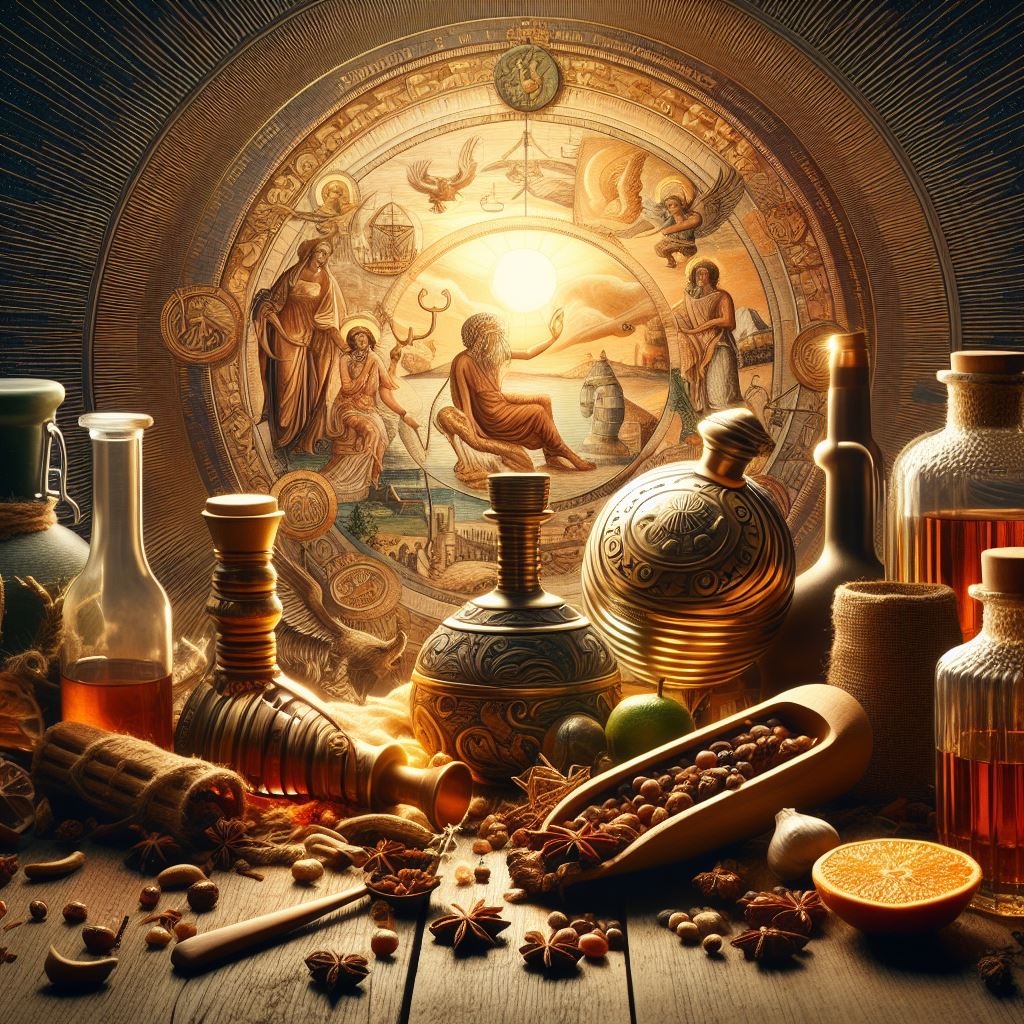
The history of spirits is a fascinating journey that spans thousands of years, intertwining with human civilization’s evolution, cultural practices, and technological advancements. The story begins around 8000 BC, where evidence suggests that the earliest forms of alcohol production took place in the form of fermented beverages. However, the distillation process, crucial for creating spirits, is believed to have been developed much later.
The art of distillation, which separates alcohol from fermented mixtures, is thought to have been first practiced by ancient alchemists in the Middle East around the 8th century AD. These early distillations were primarily for creating perfumes and medicines. The knowledge of distillation spread to Europe through the Middle Ages, where it was refined and adapted to produce alcoholic spirits.
The first recorded distillation of alcohol to create a spirit is attributed to the School of Salerno in the 12th century in Italy. Initially, these spirits were used for medicinal purposes, believed to cure a variety of ailments and were referred to as “aqua vitae” or “water of life” for their supposed life-enhancing properties.
Whiskey, vodka, brandy, and rum are among the oldest spirits known to have been distilled. Whiskey in Ireland and Scotland, vodka in Russia and Poland, brandy in France, and rum in the Caribbean all have storied pasts that reflect their origins and the cultural significance imbued in them over centuries.
The 15th and 16th centuries saw the rise of distilled spirits as a popular form of alcohol, thanks in part to improvements in distillation technology. Spirits became a valuable commodity for trade and taxation, leading to the establishment of the first commercial distilleries in Europe and later in the New World.
The history of spirits is also marked by periods of regulation and prohibition, reflecting societal attitudes towards alcohol. The 18th and 19th centuries, in particular, saw various laws introduced to control the production, sale, and consumption of spirits, culminating in the Prohibition era in the United States in the early 20th century.
Today, the production and consumption of spirits are celebrated worldwide, with an appreciation for the craft of distillation and the cultural heritage of different types of spirits. From small artisanal distilleries to large-scale operations, the spirit industry continues to evolve, blending tradition with innovation to create a diverse and rich array of products enjoyed by many.
In essence, the history of spirits is a mirror to human history, reflecting our social, technological, and economic changes. It is a testament to our enduring relationship with alcohol, a component of our collective identity and culture.
How useful was this post?
Click on a star to rate it!
Average rating 0 / 5. Vote count: 0
No votes so far! Be the first to rate this post.
